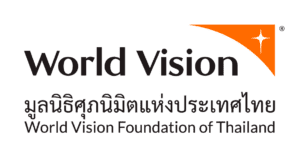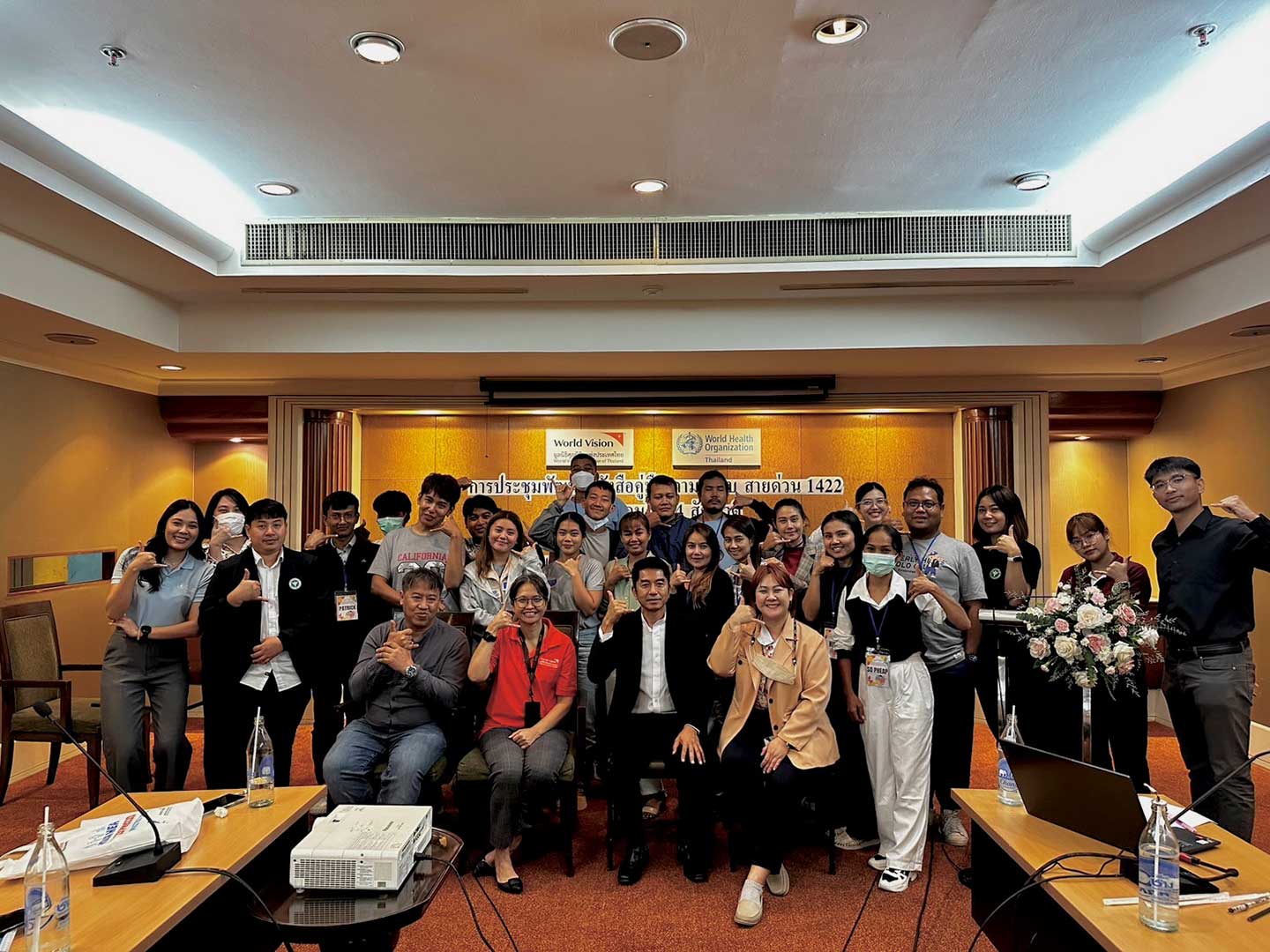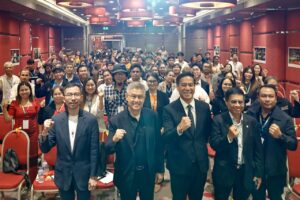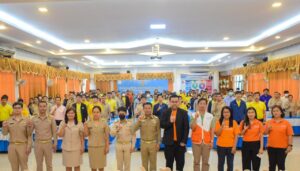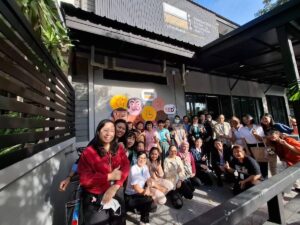Did you know that Thailand has as many as 2,743,673 migrant workers, or equivalent to 6.92% of the country’s workforce? (source: Ministry of Labour) However, the actual number of the foreign workforce including their dependents who migrate to Thailand reached as many as 5 million. These migrant workers are key contributors to the country’s economic and social development.
During the past pandemic, one of our lessons learned was that migrant workers –a key driver in the industry, agriculture and service sectors– had limited access to health services they were entitled to. At that time, thanks to the support of WHO, the Department of Disease Control and World Vision Thailand, as well as other government and civil society organisations, collaborated to enhance the capacity of migrant health volunteers (MHVs) and equipped them with correct knowledge about COVID-19 and how to access health services and communicate health information so that they would be able to operate the Hotline 1422, which aims to provide migrant workers in Thailand from Laos, Cambodia, Myanmar and Vietnam with COVID-19 knowledge and health recommendations.
Although the pandemic situation has already resolved, some other health threats, for example AIDS, TB, influenza and monkeypox, continue to prevail. While limited access to accurate health information is still a challenge for migrant workers, the Hotline 1422 service availabe in four more languages continues to be a necessary means to reach and support migrant workers in Thailand.
To ensure that Hotline 1422 will be able to better provide effective services and comprehensive health consultations to the migrant population, in October 2023, World Vision Thailand joined hands with the Department of Disease Control, Ministry of Public Health to conduct a conference to develop a QA guide for the hotline managed by the Department of Disease Control in four languages, which enhanced the capacity of MHVs in operating migrants’ Hotline 1422 and kept them updated with emerging diseases or disease vigilance.
Kriangkamol Muankrud, the director of the Risk Communication Bureau, the Department of Disease Control reveals: “During the past pandemic situation, without Hotline 1422, both in Thai and foreign languages, the Department of Disease Control would have faced great difficulties in managing our operations and profile. Thanks to all of you, the front-liners who helped provide the necessary information to the callers. Without you, the department would have had difficulty in achieving our operations because of the language barrier and cultural differences.”
This meeting to develop the QA guide also incorporated the analysis of the surveillance of possible health threats, such as mosquito-borne diseases, sudden deafness, monkeypox, influenza and avian flu, to ensure that the proper information including preventive practices and treatment recommendations would be in place.
Chat Chaiyaso from the Office of International Cooperation, Department of Disease Control emphasises the importance of TB treatment and case follow-up: “It is recommended that the patient must strictly follow the continued treatment for at least six months. If they fail to adhere to the regimen during this period, they will develop a drug-resistant condition, leading to more difficulty in treatment and higher-cost medicine. We encourage the patient to leave their contact number and information to the hospital to make it easy to follow up on their conditions. For communicable diseases across the country that are not prevalent in Thailand, for instance, meningococcal disease and yellow fever, if the patient wishes to receive vaccination, they need to check with the destination country first because only a few hospitals have these vaccines.”
In the final session of the meeting, Adisorn Kerdmongkol, the co-ordinator of the Migrant Working Group, raises awareness of the labour rights and health services that migrant workers are entitled to after their arrival to Thailand. He also covered social security and public health benefits, such as childbirth expense and childcare subsidies and communicated the differences between the social security and public health benefits. The MHVs were equipped with the necessary information that would be passed on to their fellow migrants.
Currently, Hotline 1422 provides health information in six languages including Thai, English, Lao, Cambodian, Myanmar and Vietnamese. The operators are ready to answer migrants’ health-related questions Monday to Friday from 8:00 a.m. to 8:00 p.m.
Diseases and illnesses do not discriminate between race and language. Governments and employers should not ignore the rights to health and access to health services for these vulnerable workers.
